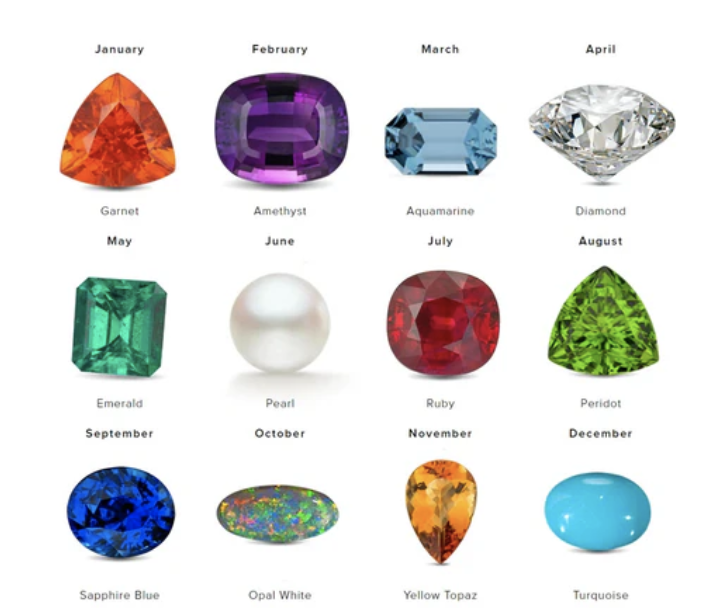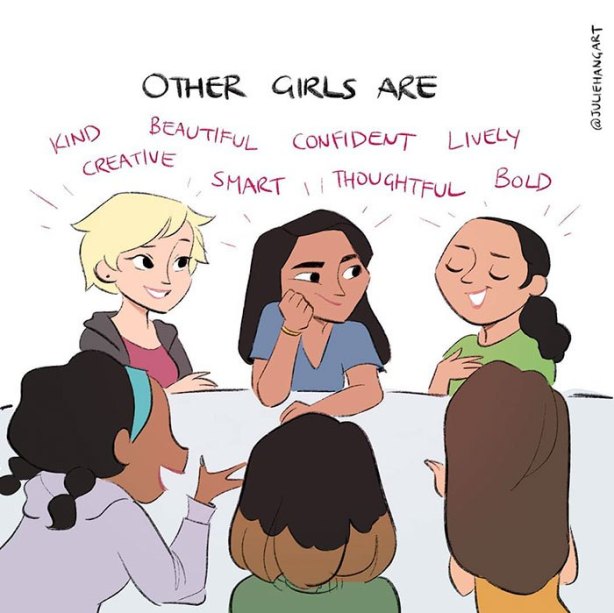Modern-Day Misogyny: From the Perspective of High School Girls
With this pressing need to “not be like other girls” that many women feel, the importance of lifting other females up is essential. Instead of saying she is “bossy,” say she is confident; replace “confrontational” with bold. Women already face the pressures society pushes upon them, so let’s weaken the pressure by cutting out our own internalized misogyny.
February 15, 2021
As years, decades, and centuries pass, the idea that we evolve as a society seems to be inevitable. After all, we have watched an African American president hold the presidency for two terms, when just over one-hundred years ago, black people did not have the right to vote. In 1973, Maryland became the first state to ban same-sex marriage, but six years ago, in 2015, gay marriage became officially legal nationwide.
While great, undeniable strides have occurred through the years, the idea that we have reached ultimate equality in this nation is, plainly, outrageous. Yes, many groups have earned more rights, but African Americans are still facing police brutality, the LGBTQ+ community remains oppressed, and, a group that makes up 49.6% of the world’s population, women, are still discriminated against.
This discrimination towards women has earned its own word, “misogyny.” Often taught in US history classes, Oxford Languages defines misogyny as the “dislike of, contempt for, or ingrained prejudice against women.” Students learning this term in school, as it is a part of American history, are usually taught 1950s scenarios in which women were viewed as only good for making their husbands meals and raising children.
Luckily, society has broadened from this sexist mindset, and now women are not viewed as dish-washers, but rather CEO’s, or vice presidents. This progress has not gone unnoticed, but the misconception that misogyny is a problem of the past is, unfortunately, untrue.
Today, misogyny disguises itself in far subtler ways than most imagine, typically through commonly used terms that are meant to tear women down. The words “bossy” and “basic” are thrown around when referring to women, creating an environment that makes it virtually impossible for women to live unapologetically.
Growing up, I always had this lingering fear that I would be viewed by others as “basic.” I constantly felt the need to dress and look different than my peers, as appearing “basic” was truly my worst nightmare. When One Direction was the most popular band, I suppressed my love for their music because of my need to be viewed as unique. My need to be different was not entirely voluntary, but because I feared this label that was pushed upon girls for liking normal, teenage-girl things. Still, as a seventeen-year-old, I find myself regularly dying my hair drastically different colors so that I can avoid the title of “basic.”
Jillian Gray (12), Yorba Linda High School senior, has undergone a similar experience, as she has grown up in a world where being confident has been given a new word because of her gender, “bossy.” She explains that “while the other kids, boys, were celebrated for taking charge, [she] was told to quiet down and not boss around [her] peers.” Even now, as she takes on her early adult years, “the idea of being perceived as ‘bossy’” still scares her.
Similarly, Grace Khamo (10), was raised watching her idols earn unrightful labels due to this persisting misogyny that still lingers in the 21st century. As a soccer player, Khamo loves watching women’s soccer on the television. While she watched her idols prove to be strong, hard-working women, she also heard them talked about in entirely different lights. Specifically, when a referee would call a foul that a player found unjust, causing them to become visibly expressive, “[she] noticed the female players would be called ‘confrontational,’ whereas the male players were simply ‘passionate.’”
In a world where having certain interests makes you “basic,” showing confidence makes you “bossy,” and sticking up for yourself makes you “confrontational,” it feels impossible to live without relentless scrutiny. Being a woman today may not be as bad as it was in the early 1900s, but deniers of misogyny in the 21st century clearly have not experienced the exhaust that comes with merely living as a female.
During a time when women receive backlash for seemingly everything we like, say, or do, it is essential that we empower fellow women. Instead of intensifying the evident gender inequality that persists around the world, we can help diminish the internalized misogyny so many ladies possess. Growing up in this world designed for men, we have been conditioned to also hold an underlying contempt for other women. Through fixing our own personal misogyny we may unknowingly hold, we can hold others accountable for their ingrained bias against women, and create a space where we women can live freely.








































Nikole Galea • Feb 21, 2021 at 11:22 AM
I think you brought a very complex problem and made it in the perspective of girls our age. Great article!
Sarah Hailey Lemos • Feb 15, 2021 at 7:40 PM
Honestly, it feels so burned into society like it’s nothing. Thank you for addressing this issue. It feels nice to be able to open up about it.
Emily Eslao • Feb 15, 2021 at 7:18 PM
This was truly a powerful article, Riley. Thank you for addressing this issue and providing insightful perspectives that give weight to the claim. I’m sure all women have had personal experience, to some degree, with modern day misogyny.